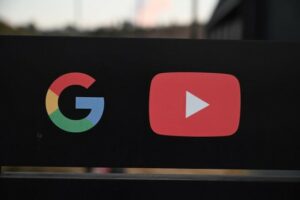Google’s online ad business is under scrutiny, according to The Wall Street Journal, following the release of new data on its video-ad placements. Some ad buyers are calling it a “breach of trust” and are demanding their money back. The Journal cites Adalytics’ analysis of Google’s TrueView skippable in-stream ads, which found that about 80% of its ad placements on third-party sites don’t meet the tech giant’s standards. Google’s guidelines indicate the ads are supposed to appear on top-quality sites, ahead of main video content and with audio on — and brands are told they will only pay for ads that aren’t skipped.
- Google says the report “makes many claims that are inaccurate,” and a spokesperson maintains the vast majority of video ads it sells go on Google-owned YouTube, not third-party sites.
By Jake Perez, Editor at LinkedIn News
Google’s Online Ad Monopoly Under Fire: Gannett Files Lawsuit Against Tech Giant
 Gannett, the largest newspaper publisher in the U.S. and the owner of USA Today, has sued Google and its parent company Alphabet for allegedly violating antitrust laws and harming the news industry by monopolizing the online advertising market.
Gannett, the largest newspaper publisher in the U.S. and the owner of USA Today, has sued Google and its parent company Alphabet for allegedly violating antitrust laws and harming the news industry by monopolizing the online advertising market.
The lawsuit, filed on Tuesday in a New York federal court, accuses Google of using its dominant position in the digital ad space to control how publishers sell their ad inventory, force them to accept lower prices, and extract monopoly profits for itself.
Gannett claims that Google’s practices have reduced its digital ad revenue by hundreds of millions of dollars over the past decade, and have also hurt its ad technology rivals and other publishers.
How Google Controls the Online Ad Market
According to the lawsuit, Google has acquired and maintained monopolies over several key components of the online ad market, including:
The ad server, which is the software that publishers use to manage their ad inventory and display ads on their websites.
The ad exchange, which is the platform where publishers sell their ad inventory to advertisers or intermediaries.
The demand-side platform (DSP), which is the tool that advertisers or intermediaries use to buy ad inventory from publishers or exchanges.
The supply-side platform (SSP), which is the tool that publishers or intermediaries use to sell ad inventory to advertisers or exchanges.
Gannett alleges that Google has leveraged its dominance in each of these segments to create a “walled garden” that favors its own products and services over those of its competitors.
For example, Gannett says that Google has integrated its ad server with its ad exchange and DSP, creating a “closed loop” that gives it an unfair advantage in buying and selling ads. Gannett also says that Google has used its market power to impose restrictive terms and conditions on publishers and advertisers, such as requiring them to use Google’s ad server or exchange to access certain features or data.
Gannett argues that these practices have enabled Google to charge higher fees, reduce competition, and lower the quality and diversity of online content.
The Impact on Gannett and the News Industry
Gannett, which operates more than 200 daily newspapers across the U.S., says that it has been severely affected by Google’s monopoly over the online ad market.
The lawsuit states that Gannett’s digital ad revenue has declined by more than 50% since 2011, despite an increase in its online audience and traffic. Gannett also says that it has been forced to sell more of its ad inventory to Google at depressed prices, resulting in a loss of hundreds of millions of dollars in potential revenue.
Gannett claims that Google’s practices have also harmed the news industry as a whole, by reducing the incentives and resources for publishers to invest in quality journalism. Gannett says that it has had to cut costs and close more than 170 publications since 2019, when it merged with GateHouse Media.
Gannett’s CEO and chairman Mike Reed said in a statement that “digital advertising is the lifeblood of the online economy” and that “without free and fair competition for digital ad space, publishers cannot invest in their newsrooms.”
Google’s Response and Other Legal Challenges
Google has denied the allegations in Gannett’s lawsuit, saying that they are “simply wrong.”
Dan Taylor, Google’s vice president of global ads, said in a statement that “publishers have many options to choose from when it comes to using advertising technology to monetize” and that “when publishers choose to use Google tools, they keep the vast majority of revenue.”
Taylor also said that Google will show the court how its advertising products benefit publishers and help them fund their content online.
Gannett’s lawsuit is not the first legal challenge that Google has faced over its online advertising business. In January 2023, the U.S. Department of Justice and eight states sued Google for allegedly violating antitrust laws by abusing its dominance in the online search and advertising markets. In June 2023, the European Commission filed a formal statement of objections against Google for allegedly distorting competition in the advertising technology industry. In addition, several other states and private parties have also filed lawsuits against Google for similar reasons.
Google has maintained that its advertising business is competitive and beneficial for consumers, publishers, and advertisers.
The case is Gannett Co v Google LLC et al, U.S. District Court, Southern District of New York, No. 23-05177.
BY MAHNOOR JEHANGIR











